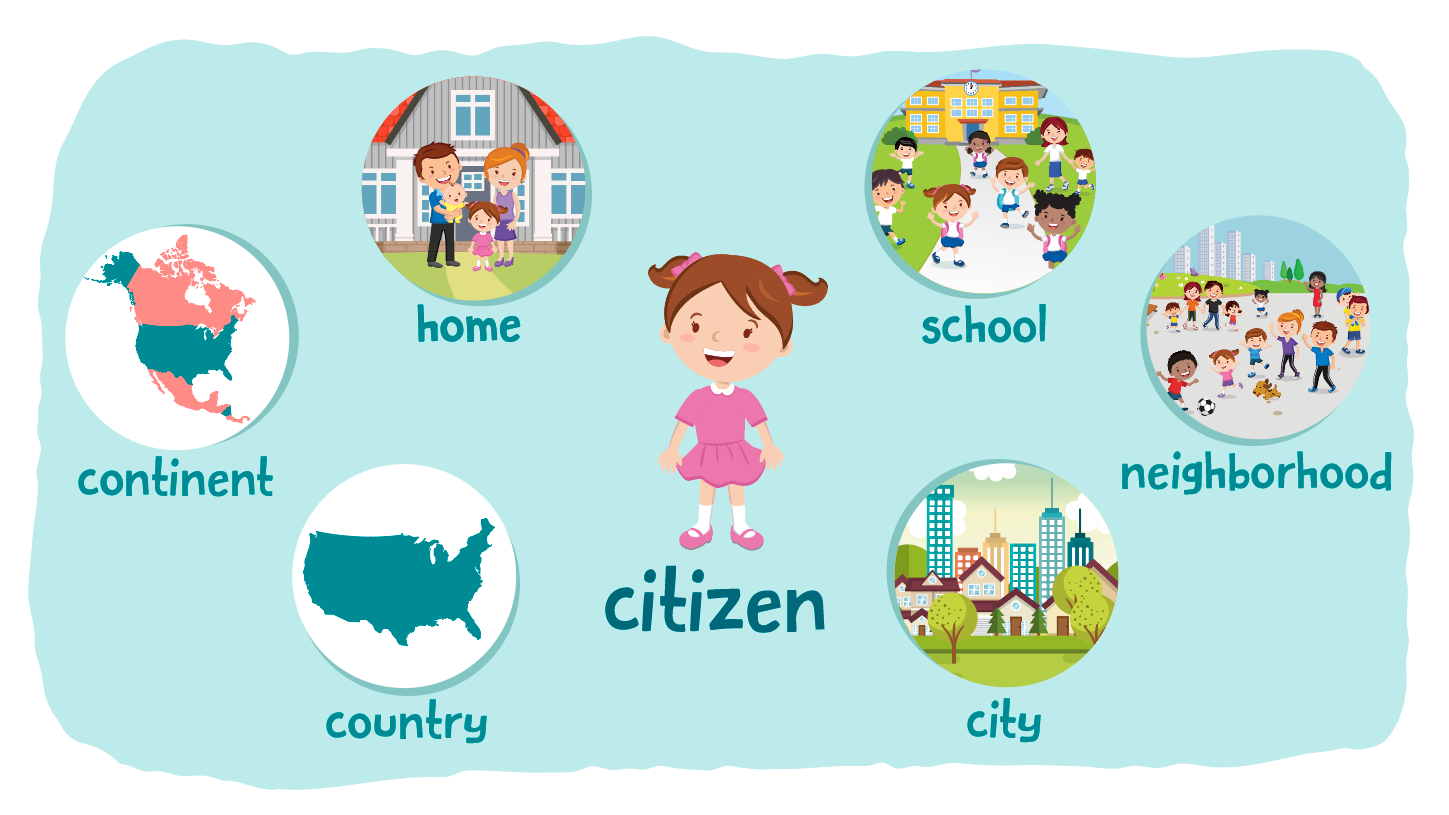Easy Chess Worksheets for Ages 4-7
6 filtered results
-
From - To
Explore our Easy Chess Worksheets for Ages 4-7, specifically designed to introduce young learners to the exciting world of chess. These fun, educational printables are perfect for developing strategic thinking and problem-solving skills in early grade students. Each worksheet guides kids through basic chess concepts, helping them become familiar with the chessboard, the movement of different pieces, and basic strategies. With a variety of engaging activities, our worksheets make learning chess both fun and stimulating for young minds. Download now to spark a lifelong love for chess in your little ones!
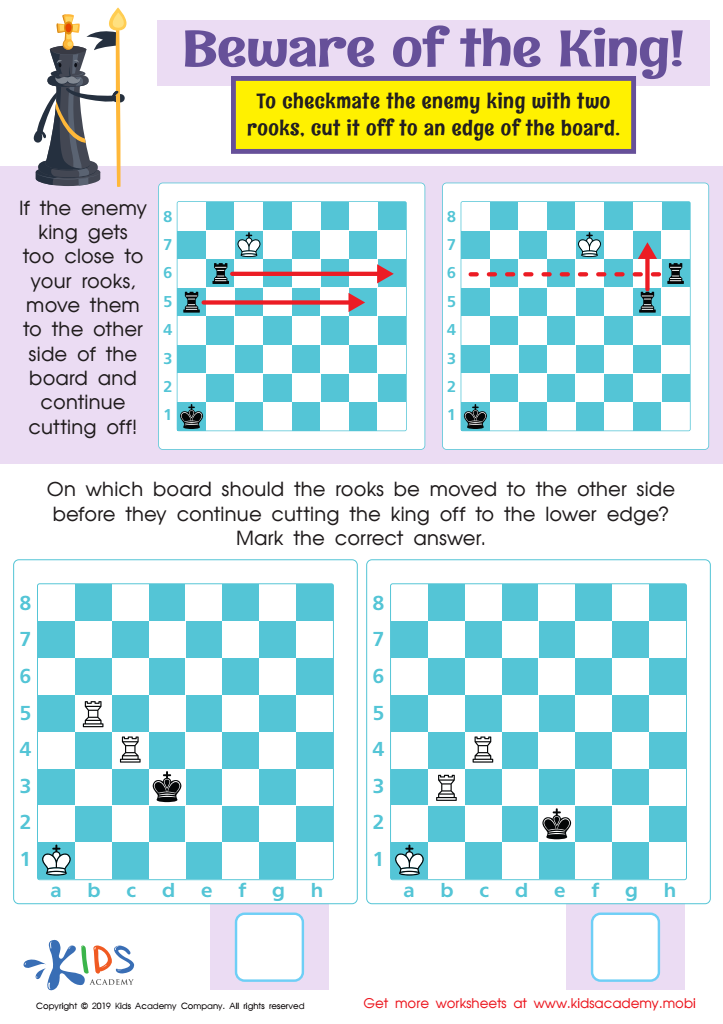

Beware of the King! Worksheet
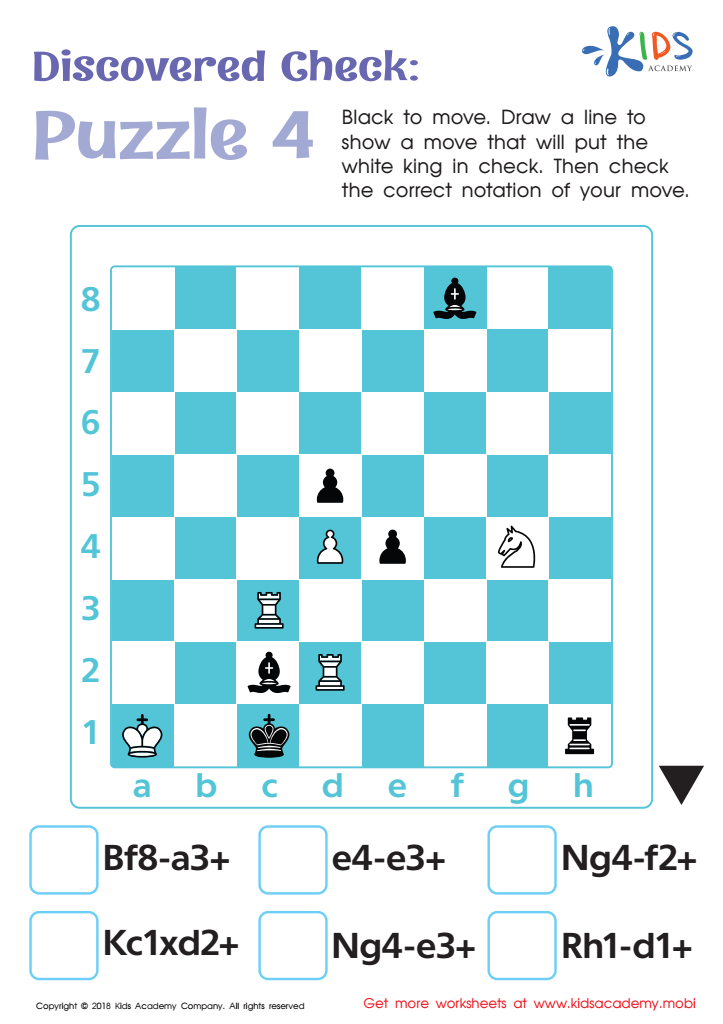

Discovered Check: Puzzle 4 Worksheet


Discovered Check: Puzzle 2 Worksheet
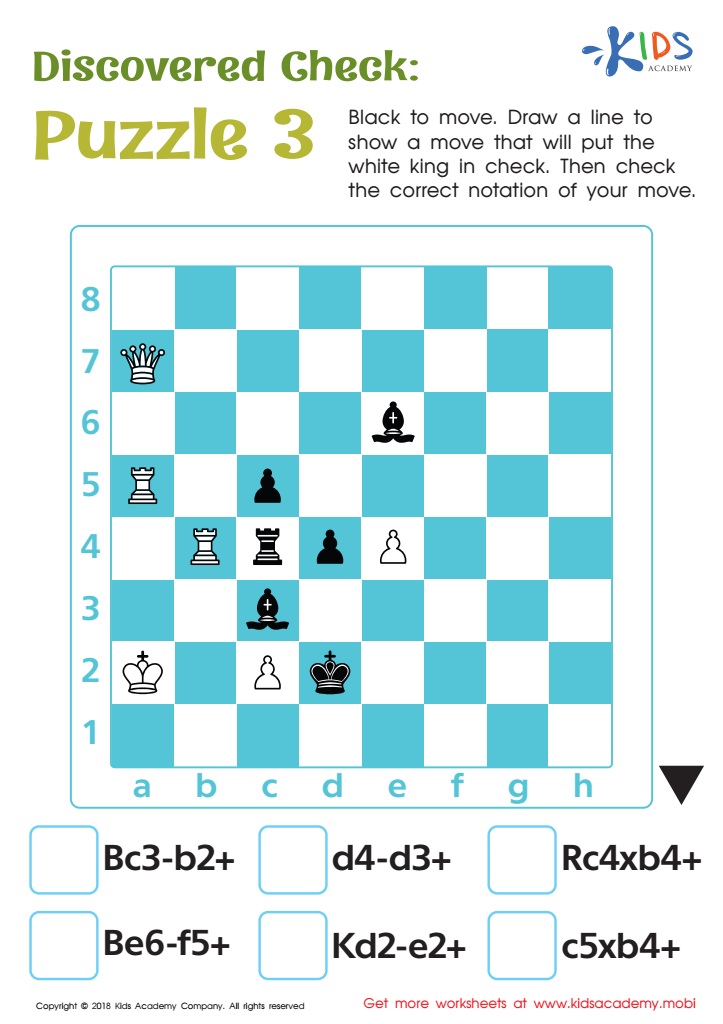

Discovered Check: Puzzle 3 Worksheet
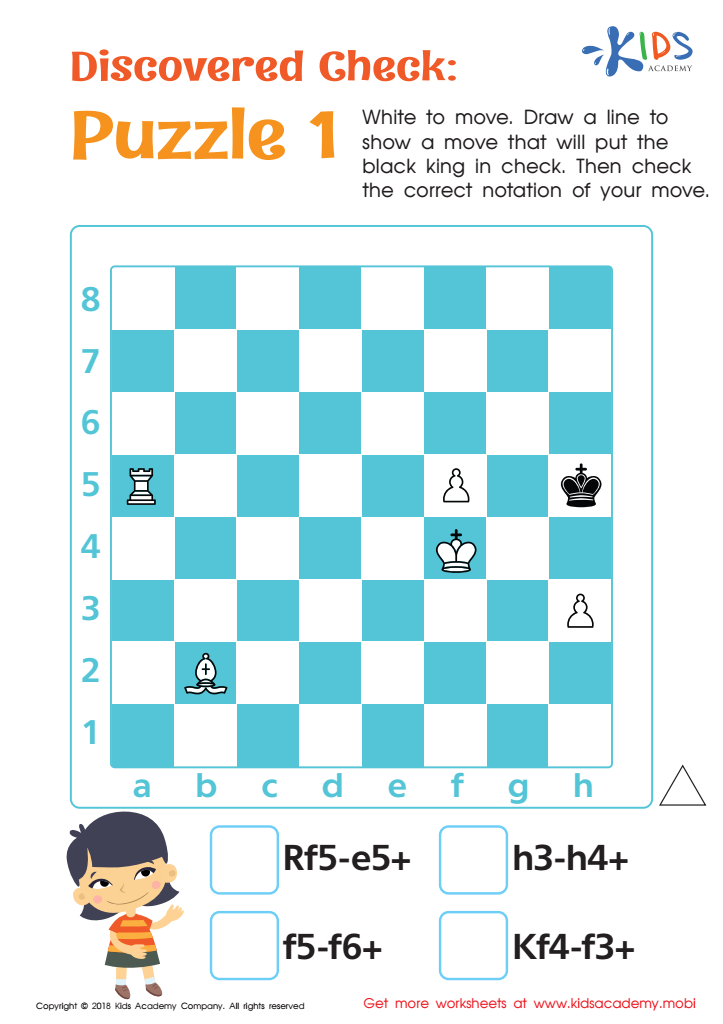

Discovered Check: Puzzle 1 Worksheet
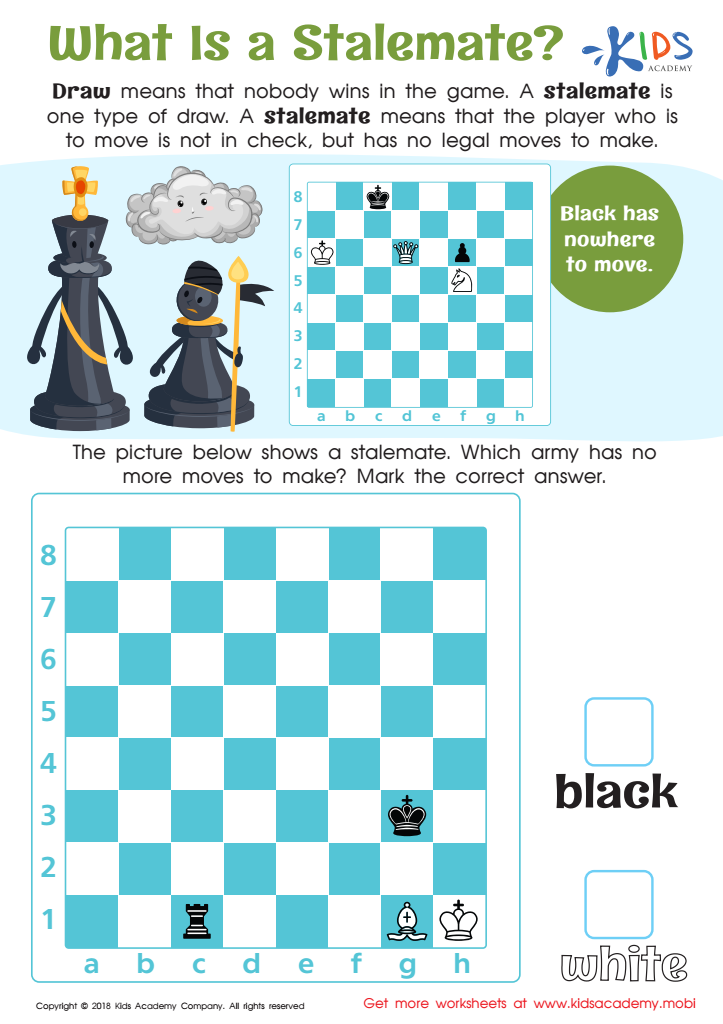

What Is a Stalemate? Worksheet
Easy Chess for ages 4-7 is an invaluable tool for parents and teachers, unearthing a treasure trove of cognitive and developmental benefits for young children. Chess enhances critical thinking and problem-solving abilities. By learning the basic moves and strategies, children become more proficient in tackling complex tasks step-by-step, a skill that extends far beyond the chessboard.
Additionally, starting with Easy Chess cultivates patience and improves concentration. In today’s fast-paced digital world, young kids often struggle with focus. Chess, with its requirement for thoughtful decision-making, helps develop attention span and patience. This mental discipline can permeate other areas of their lives, from academics to daily activities.
Moreover, chess fosters emotional intelligence through the concept of sportsmanship. Children learn to handle wins and losses gracefully, promoting resilience and emotional maturity. It's a practical way to teach them about coping with challenges and setbacks in a healthy manner.
Socially, chess can be a bridge to enhanced interpersonal skills. Whether playing with peers, parents, or teachers, it fosters communication and collaborative thinking. It’s also a fun way for parents and educators to bond with children, making it a holistic developmental tool. Easy Chess not only makes learning accessible and enjoyable but sets the stage for lifelong cognitive and social skills.
 Assign to My Students
Assign to My Students





